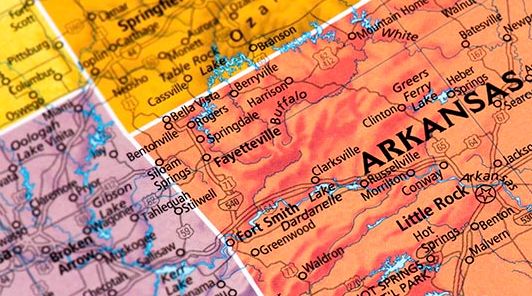Economist: 70 percent of Northwest Arkansas growth is in-migration
by September 30, 2018 9:59 am 4,442 views

Population growth in Northwest Arkansas has been growing by about 12,000 new residents per year – a 1,000 person a month average increase – since 2014 and there appears to be no end in sight. Economist Mervin Jebaraj says about 70% of that net growth are new residents moving to Benton and Washington counties.
“That’s net in-migration, people moving to Northwest Arkansas from other parts of the state, from other parts of the country, and from other countries as well,” he said.
Roughly 40% of the 70% moving into Northwest Arkansas are coming from other areas of Arkansas, according to Jebaraj. Another 25% of the 70% growth is coming from surrounding states such as Texas, Oklahoma and Missouri. About 10% have come to Northwest Arkansas – home of Walmart, Tyson Foods and J.B. Hunt’s corporate headquarters – from east and west coast states like California and New York.
“There’s just a lot more people moving here from the surrounding regions than we are seeing from internationally or from the big coastal areas,” Jebaraj added. He also noted that all of those in-migration residents are putting tremendous stress on the ability to keep up infrastructure, housing and other necessities.
The rapid growth in the region has also translated in the last 12 months into higher regional GDP (+3.4%), more business establishments (+3.1%), and a highly-accelerated median household income leap of +8.1%.
“When we think about what’s going on with median household income, you saw that 8.1% increase, but it was so surprising that I actually had to call the Census [Bureau] and make sure that the number was correct. They assured me that it was,” Jebaraj said.
“That kind of growth rate in median household income, we’ve been trying to catch up to where the national median household income is. We’re just shy of that, but we’re still 20%-30% lower than some of these peer regions that I’ve just mentioned, like Austin and Madison and Des Moines. So, we have a lot more growing to do in the median household income picture before we catch up to both the nation and some of our peer regions,” he added.
Watch Jebaraj’s full interview in the video below.
